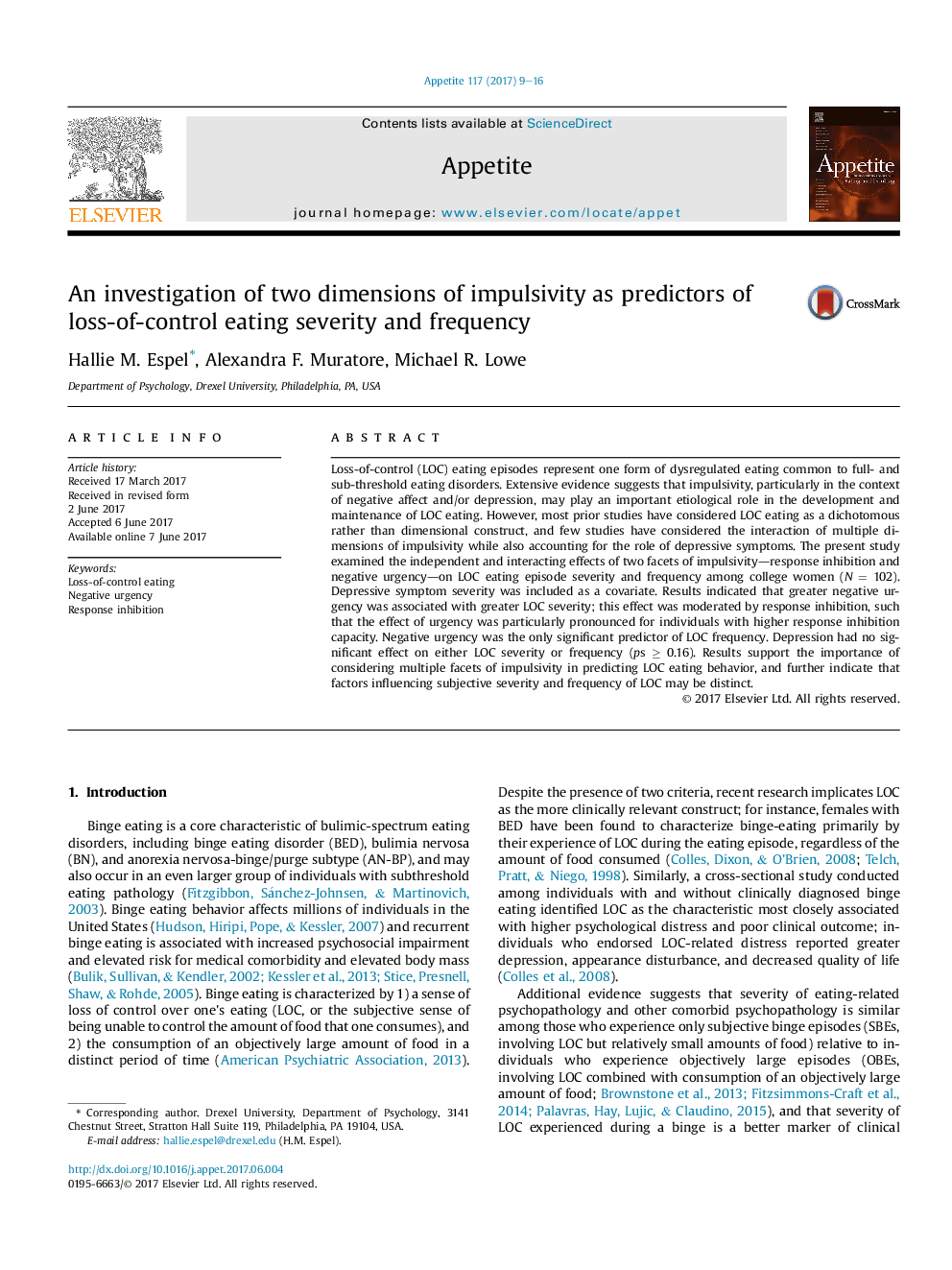| Article ID | Journal | Published Year | Pages | File Type |
|---|---|---|---|---|
| 5044053 | Appetite | 2017 | 8 Pages |
Loss-of-control (LOC) eating episodes represent one form of dysregulated eating common to full- and sub-threshold eating disorders. Extensive evidence suggests that impulsivity, particularly in the context of negative affect and/or depression, may play an important etiological role in the development and maintenance of LOC eating. However, most prior studies have considered LOC eating as a dichotomous rather than dimensional construct, and few studies have considered the interaction of multiple dimensions of impulsivity while also accounting for the role of depressive symptoms. The present study examined the independent and interacting effects of two facets of impulsivity-response inhibition and negative urgency-on LOC eating episode severity and frequency among college women (N = 102). Depressive symptom severity was included as a covariate. Results indicated that greater negative urgency was associated with greater LOC severity; this effect was moderated by response inhibition, such that the effect of urgency was particularly pronounced for individuals with higher response inhibition capacity. Negative urgency was the only significant predictor of LOC frequency. Depression had no significant effect on either LOC severity or frequency (ps â¥Â 0.16). Results support the importance of considering multiple facets of impulsivity in predicting LOC eating behavior, and further indicate that factors influencing subjective severity and frequency of LOC may be distinct.
